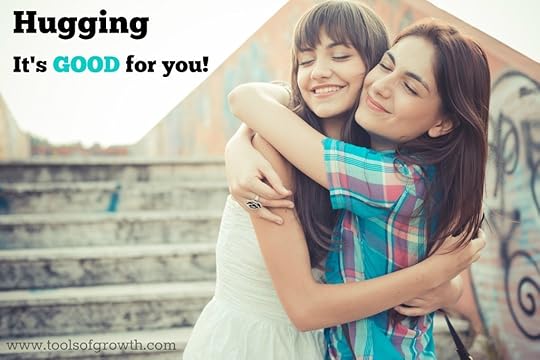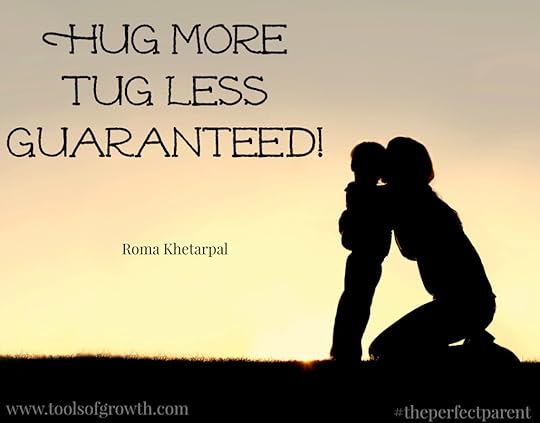The Power of a Hug
Think about the last time you received a great big hug from someone. It might have been your spouse, your parent, or maybe your child? How did it make you feel? Warm? Safe? Loved?
We often hear stories of premature babies who have grown and flourished while connecting skin-to-skin with their mothers. Many children who have emotional issues benefit greatly with hug therapy. When depression strikes, or you have that sense of being overwhelmed, a hug can raise your oxytocin levels, the hormone that calms you down and can even help in healing. Why, then, don’t we make it a point to hug each other more if we know all the amazing benefits?
The word “hug” comes from an old Norse word hugga meaning to soothe or console. It became a term of affectionate embrace sometime around 1650.
As parents, we cuddle our babies close on instinct. As our kids get older, we hug them when we are proud or when they are hurt. At some point, the hugging slows down – usually around the time they start to recognize their independence and we hear… “Awwww Mom, I don’t need a hug. It’s embarrassing.” Oh yes, that is precisely when they need those hugs the most.
Our society today seems to have moved away from the hug as a socially acceptable form of greeting. Old friends or family might hug, but we’ve also been told to respect boundaries and keep distance lest people get offended. Teachers are told not to hug their students, coaches are told not to hug their athletes. We’ve become fearful of anyone taking that “hug” the wrong way when in reality, a hug can be just a hug. It shows our affection for someone, shows that we care about them.
The cultural aspects of hugs also come into play. Europeans tend to hug each other more than Americans. They can touch each other up to 100 times in an hour, while Americans only touch each other 2 – 3 times.
A hug is like a boomerang – you get it back right away.
– Bil Keene
According to researchers at Carnegie Mellon University, hugs help protect against stress and infection. They studied the effects of hugging on the immune system and found that those under more stress were less likely to fight off colds. Since hugging is a sign of having more intimate and close relationships with other people, they deducted that having those closer and more satisfying relationships were beneficial to your overall health.
If a hug can boost your immunity, build your self-esteem and make you feel better overall, we should all make a point of hugging those we care about even more. When having a disagreement with a loved-one or discussing a serious topic, always top it off with a heart-to-heart hug. Hugs fill in the gaps and reach where words can’t.
Read more about the benefits of hugging:
I Want to Hold Your Hand: Physical Contact Contributes to Health & Wellness
The Shocking Truth Behind Hugs
The post The Power of a Hug appeared first on Tools of Growth.





